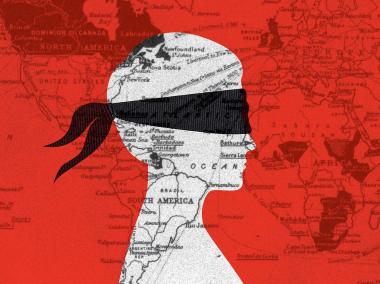In the complex tapestry of human interaction, the evolution of race relations has emerged as a profound narrative, marking a shift from mere tolerance to genuine love. At the core of this journey lies the Bahá’í teachings, which provide a distinctive lens through which to view interconnectedness and unity among diverse peoples. The Bahá’í Faith posits that the ideal social order must emerge from the recognition of the inherent oneness of humanity. This transformative perspective encourages individuals to transcend the superficial barriers of race, fostering an environment where love and understanding flourish.
To comprehend the Bahá’í approach to race relations, one must first consider the philosophical foundation that underpins its teachings. The Bahá’í writings emphasize that all humans, regardless of their racial or ethnic backgrounds, originate from a single source. This holistic view of humanity serves as a catalyst for dismantling prejudices and promoting acceptance. When one perceives every individual as a reflection of divine essence, the barriers that often delineate groups begin to dissolve, revealing a shared humanity.
Furthermore, the metaphor of the “sun and its rays” serves as an illuminating illustration within the Bahá’í context. The sun represents the universal source of truth and guidance, while the rays symbolize the diverse manifestations of humanity. Each ray is unique in its characteristics—much like different races and cultures—but all originate from the same celestial body. The beauty of the sun lies not only in its light but in its ability to embrace the rays collectively. In a similar vein, the Bahá’í teachings encourage society to embrace its diverse components, recognizing that each contributes to the greater illumination of truth.
Historically, humanity’s journey towards the recognition of racial equality has been laden with challenges. The specter of racism looms large over civilizations, often breeding animosity instead of understanding. The Bahá’í Faith addresses these societal maladies directly, asserting that true progress can only occur when individuals confront their biases and engage in a dialogue about race. Such discussions necessitate vulnerability and honesty; they require one to shine a revealing light on the shadows of prejudice that may exist within. The willingness to engage in this process marks the initial step towards transcending tolerance, staging a profound evolution towards love.
Love, in the context of Bahá’í teachings, transcends superficial kindness. It embodies a multifaceted commitment to understanding, compassion, and empathy. The Bahá’í texts elucidate that love should be the foundation of all interactions, urging individuals to foster relationships that reflect this ideal. This amorous approach is not merely the absence of hostility but rather an active pursuit of mutual respect and admiration across racial divides. The cultivation of such relationships is akin to nurturing a garden—requiring consistent attention, care, and a willingness to learn from one another’s experiences.
The Bahá’í teachings further elucidate the significance of education in promoting racial harmony. Education, viewed as a vital instrument for personal and social transformation, empowers individuals to dismantle ignorance—the root cause of prejudice. The metaphor of education as a “key” encapsulates its role in unlocking understanding and facilitating open-mindedness. Access to education encourages the exploration of diverse cultures, histories, and paradigms, engendering a deeper appreciation for the mosaic of human experience. Through this lens, individuals are encouraged to embark on a lifelong journey of learning, refining their perspectives and broadening their horizons.
Sociocultural initiatives advanced by Bahá’í communities around the globe further manifest this commitment to educating individuals on the importance of race relations. Through community-building activities, interfaith dialogues, and collaborative projects, Bahá’ís exemplify their teachings in action. These initiatives seek to heal the rifts inflicted by social injustices, positional biases, and systemic inequities. The collective effort towards harmony is akin to constructing a bridge that spans previously insurmountable divides; it allows individuals to traverse the chasms and discover shared aspirations.
Moreover, the Bahá’í emphasis on action-oriented spirituality provides a model for engaging with race relations. The teachings advocate for a dynamic interplay between belief and practice, suggesting that mere acceptance of principles is insufficient for meaningful change. Spirituality, in this context, is invigorated through service to others, prompting adherents to act in ways that promote justice, equity, and love. Such engagement does not retreat into the solace of passive tolerance; it propels individuals forward into the intricate dance of human connection, where intentions and actions converge harmoniously.
As society further grapples with the legacies of racism and discrimination, the evolution from tolerance to love, as illuminated by Bahá’í teachings, presents a compelling framework for healing. It invites individuals and communities to embrace a deeper understanding of themselves and one another, fostering relationships built on respect and appreciation. The journey is neither swift nor uncomplicated; it demands resilience, introspection, and an unwavering commitment to a vision of unity that transcends the limits of race.
Ultimately, the Bahá’í teachings reflect a clarion call towards fostering a world characterized by love—a testament to the belief that the essence of humanity is found in diversity, and in the love that connects each individual. As we navigate this path, may we strive always to illuminate the unique appeal inherent in our differences, transcending the mundane practices of tolerance and embarking on the vibrant voyage towards enduring love.
